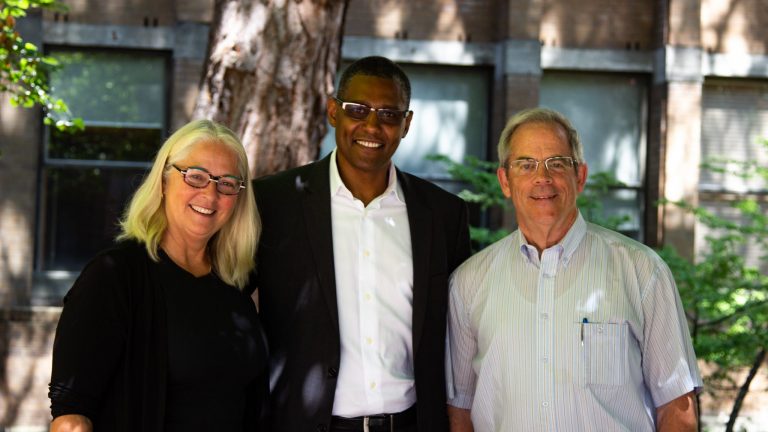
As part of the LFS Scholars Series, the Applied Animal Biology graduate program in the Faculty of Land and Food Systems hosted Dr. Ermias Kebreab from the University of California, Davis to share his research and policy work related to agriculture’s transition to net zero emissions. AWP’s Nina von Keyserlingk introduced Ermias, having known him since his early career as a Canada Research Chair at the University of Manitoba, and later co-authored a paper for the USDA related to sustainability in the US dairy system. Nina identified Ermias’ deep respect for interdisciplinary research, collaboration, and learning, making him a clear choice for this LFS Scholar Series.
You can watch the full recording here. We asked student Amalia Urloiu to share her thoughts on the presentation.
Dr. Ermias Kebreab discussed how livestock and manure make up a sizeable component of global greenhouse gas (GHG) emissions and solutions in the livestock system to reach “Net Zero”. Some of these solutions included improving productivity and reducing the overall number of animals, optimizing animal feed, and employing GHG-focused genetic selection and breeding.
An example of optimizing animal feed includes implementing methane-reducing feed additives. Dr. Kebreab’s work has found that certain seaweed additives can significantly cut emissions in beef. Currently, these types of additives fall under the regulatory purview of Health Canada and the US Food and Drug Administration, requiring regulatory approval for use. This has the impact of reducing the availability of these additives compared to others which do not require similar approvals. Recent policy work aims to clarify the regulatory positioning of different feed additives. Learn more about this example by listening to Dr. Kebreab’s full talk here.
An example of GHG-focused genetic selection includes microbial genomics in livestock agriculture for methane mitigation. Researchers are investigating the use of CRISPR to genetically engineer the gut microbiomes of cows to reduce emissions.
Acknowledgements
We would like to give a huge thanks to Dr. Ermias Kebreab for a wonderful talk and discussion, as well as the Faculty of Land and Food Systems for providing the funds through the LFS Scholar Series that made this event possible!